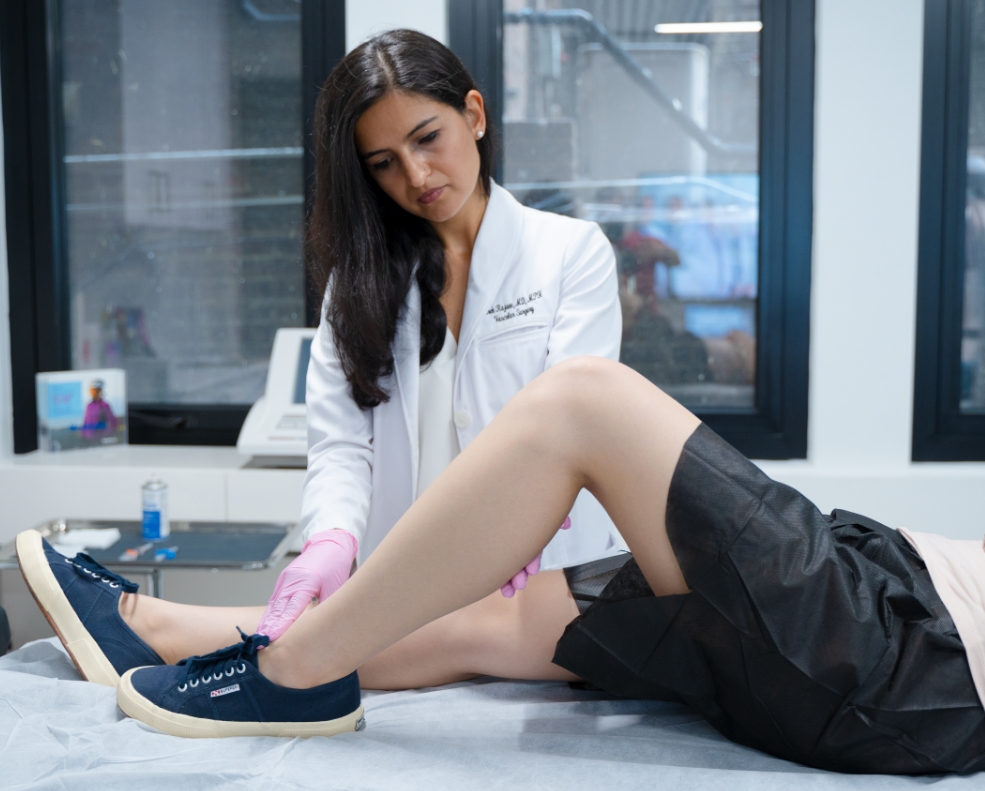What Conditions or Issues do Doctors Who Specialize In Veins Typically Address?
When it comes to the complex network of our circulatory system, veins play a pivotal role in ensuring the proper flow of blood throughout our bodies. While veins are a fundamental part of our vascular system, there are various conditions and issues that can affect them. Vein specialists, also known as phlebologists, are highly trained medical professionals who focus on diagnosing and treating a wide range of vein-related problems. In this article, we will delve into what conditions and issues vein specialists typically address, what kind of doctor specializes in veins, and why their expertise is crucial for maintaining good health.
The Role of Veins in Our Body
Veins are the blood vessels responsible for returning deoxygenated blood back to the heart. They work in harmony with arteries, which carry oxygenated blood away from the heart to various parts of the body. The proper functioning of veins is essential to maintain overall health, as any disruption can lead to a variety of health issues. Some of the common conditions and issues that vein specialists address include:

Varicose Veins
Varicose veins are enlarged, twisted veins that are often seen as swollen and blue or dark purple in color. They commonly appear in the legs and can cause pain, discomfort, and cosmetic concerns. Vein specialists use various treatment methods, such as laser therapy, radiofrequency ablation, or sclerotherapy, to alleviate the symptoms and improve the appearance of varicose veins.
Spider Veins
Spider veins are smaller, similar to varicose veins, but closer to the surface of the skin. They often appear as red, purple, or blue web-like patterns. Vein specialists can treat spider veins using similar procedures as varicose veins, aiming to reduce their visibility and any associated discomfort.
Deep Vein Thrombosis (DVT)
DVT is a condition where blood clots form in deep veins, most commonly in the legs. If left untreated, these clots can break loose and travel to the lungs, causing a pulmonary embolism, which can be life-threatening. Vein specialists help diagnose DVT through various imaging techniques and administer anticoagulant therapy to prevent clot growth and reduce the risk of pulmonary embolism.
Chronic Venous Insufficiency (CVI)
CVI is a condition that occurs when the valves in veins fail to function correctly, leading to blood pooling in the lower extremities. This can result in pain, swelling, and skin changes. Vein specialists employ treatments such as compression therapy and minimally invasive procedures to manage CVI and improve patients' quality of life.
Peripheral Arterial Disease (PAD)
Although PAD primarily affects arteries, vein specialists may be involved in its management due to their expertise in vascular diseases. PAD leads to reduced blood flow to the extremities and can cause pain, cramping, and decreased mobility. Vein specialists collaborate with other specialists to provide comprehensive care for PAD patients.

What Kind of Doctor is a Vein Specialist?
Vein specialists are formally known as phlebologists. These medical professionals are experts in the diagnosis and treatment of venous disorders. They typically hold board certification in phlebology or are interventional radiologists, vascular surgeons, or dermatologists with specialized training in venous medicine. Vein specialists have in-depth knowledge of the circulatory system and its complexities, making them well-equipped to address various vein-related issues.
The Importance of Vein Specialists in Healthcare
The expertise of vein specialists is invaluable in modern healthcare. Their ability to diagnose and treat vein-related conditions not only improves patients' quality of life but also prevents potentially life-threatening complications. Here's why vein specialists are crucial in the medical field:
Specialized Knowledge
Vein specialists have a deep understanding of the circulatory system, venous anatomy, and the latest advancements in venous medicine. This specialized knowledge allows them to provide accurate diagnoses and effective treatments.
Minimally Invasive Procedures
Many of the treatments offered by vein specialists are minimally invasive, reducing patient discomfort and recovery time. This can be especially important for individuals with chronic vein conditions, as it allows them to return to their daily activities more quickly.
Preventing Complications
Left untreated, venous conditions can lead to severe complications such as pulmonary embolism, skin ulcers, and chronic pain. Vein specialists play a critical role in preventing these complications through timely diagnosis and appropriate intervention.
Enhancing Quality of Life
The treatment of varicose veins and other venous issues not only alleviates physical symptoms but also boosts patients' self-esteem and overall quality of life. Vein specialists help patients regain confidence and comfort.
In conclusion, vein specialists are medical professionals who play a vital role in the healthcare system. They specialize in diagnosing and treating a wide range of vein-related conditions, improving patients' well-being and preventing serious complications. Their knowledge and expertise contribute to a healthier and happier population. If you or someone you know is experiencing vein-related issues, consulting a vein specialist is a wise and proactive step toward better health and improved quality of life.
Comments
Post a Comment